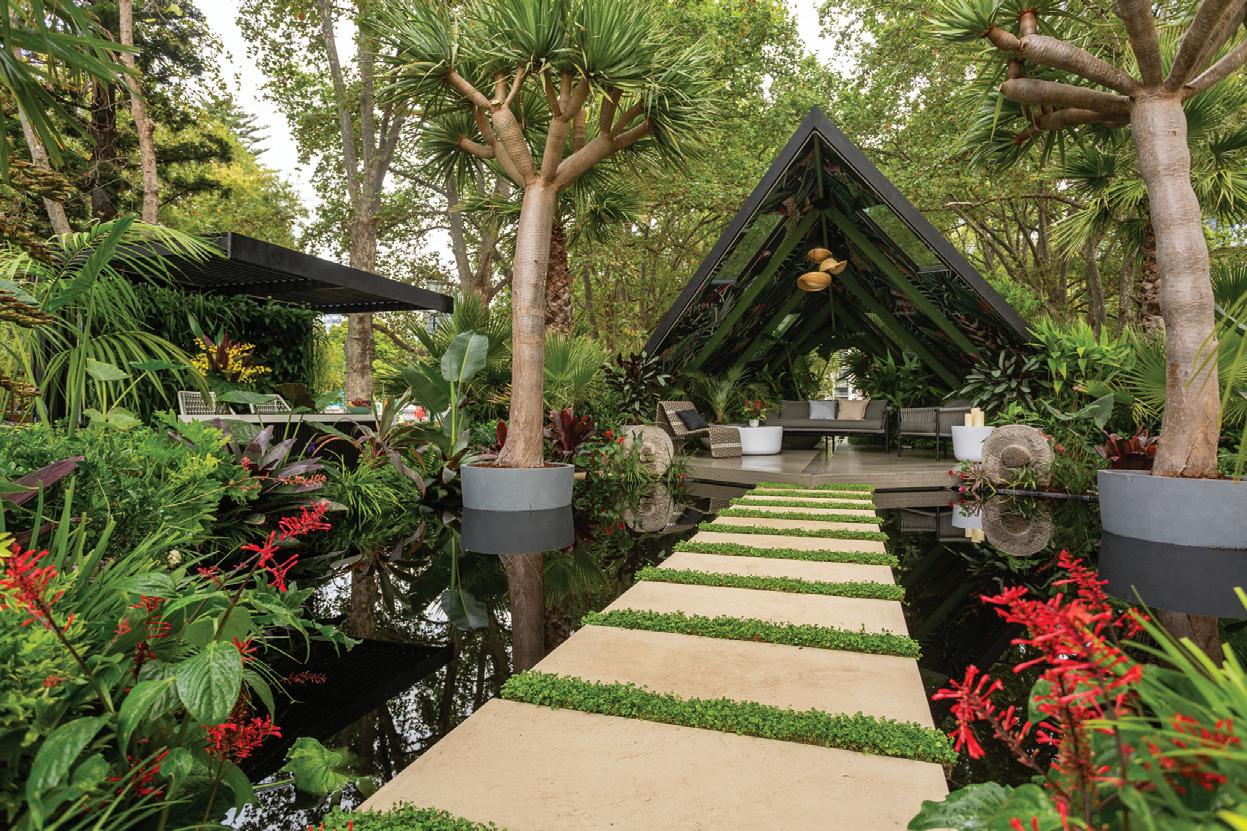
4 minute read
PP5 RECYCLING PROGRAM GATHERS MOMENTUM
By Matt Ross
In positive news for the industry, the move to build a national, closed loop polypropylene (PP5) recycling economy is rapidly growing in reach and impact.
Since launching in 2021, the program – a joint initiative between Garden City Plastics, Norwood and Polymer Processers – has expanded to include 600 bins nationally, covering every state and territory, and collecting a whopping 60 tonnes of plant pots and tags each month, up from 4.5 tonnes in May last year.
“The bins have been so well received, which goes to show that people in our sector want to make a difference. There’s now an awful lot of plastic being diverted from landfill and best of all it’s being recycled back into pots to fill with beautiful plant life,” said Greg Carrick, Sales Manager Victoria and Tasmania, Garden City Plastics.
The early success of the program can perhaps be credited to its simplicity. Plastic waste in horticulture is, after all, inevitable. It is estimated that, prior to the program’s inception, a mere eight per cent of PP5 waste was being recycled each year – just one pot or label out of every ten purchased. A major contributing factor to this, aside from a lack of education, was the fact that the infrared sensors on sorting machines cannot identify black plastics, seeing them only as a dark shape and thus sending them to landfill.
Given the ease with which PP5 can be remoulded and reused, many times and with minimal degradation, the partner companies involved saw the opportunity to create a self-supporting, industry-wide scheme. By embracing the program, and each stepping up to become a cog in the wheel, retailers, suppliers and third parties have rapidly shown the true power of collaboration.
Phase two of the rollout has now commenced and involves three key initiatives. At a national level, positive discussions with major national retailers are moving full steam ahead and will hopefully come to fruition in the near future. On a regional front, the program’s scope is being expanded to make bins more broadly available, with several logistical and cost issues having now been resolved. Another key focus will be a drive towards consumers, with point-of-sale materials now available for display. By encouraging people to return to their place of purchase to deposit used pots and labels, retailers are not only making a positive contribution to the circular economy, but can also make repeat sales and grow loyalty across their consumer base.
A recent highlight of phase two was a knowledge sharing site hosted by the program at the Melbourne International Flower & Garden Show. During the five-day event, representatives
spoke to a diverse group of stakeholders, from consumers and council members to major retailers and wholesale nurseries. A lot of useful feedback was received about the program, with conversations showing that people have a high degree of understanding about the issue and are willing to roll up their sleeves and be part of the solution. Importantly, outcomes from the event reinforced the need for the program and showed that the mission resonates with the broader community.
Reducing the impact of horticulture packaging on the environment is also helping the industry work towards the 2025 National Packaging Targets. Established by the Australian Government in 2018, the four ambitious targets apply to all packaging that is made, used and sold across the country. The initiative aims to make:
» 100 per cent of packaging reusable, recyclable or compostable
» 70 per cent of plastic packaging recycled or composted
» An average of 50 per cent recycled content in packaging
» Phase out problematic and unnecessary single-use plastic packaging.
“There’s no doubt that there’s a responsibility within our sector to not only meet the National Packaging Targets, but to exceed them. Collectively, we are now making giant strides towards that goal, and have done so in a relatively short amount of time, which is incredibly pleasing,” said Adam Coyle, Creative Manager at Norwood Industries.
Getting involved is easy, and simply requires businesses to contact PP5 to request a bin and point-of-sale materials. Delivery takes roughly 2-4 weeks for metropolitan areas. Regional areas coming soon!
More information
If you’re an NGI member business, retailer or grower, and would like to find out more, please go to PP5.com.au, email your state Garden City Plastics office or visit the Sustainability section on the GCP website.











